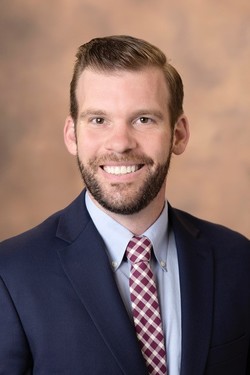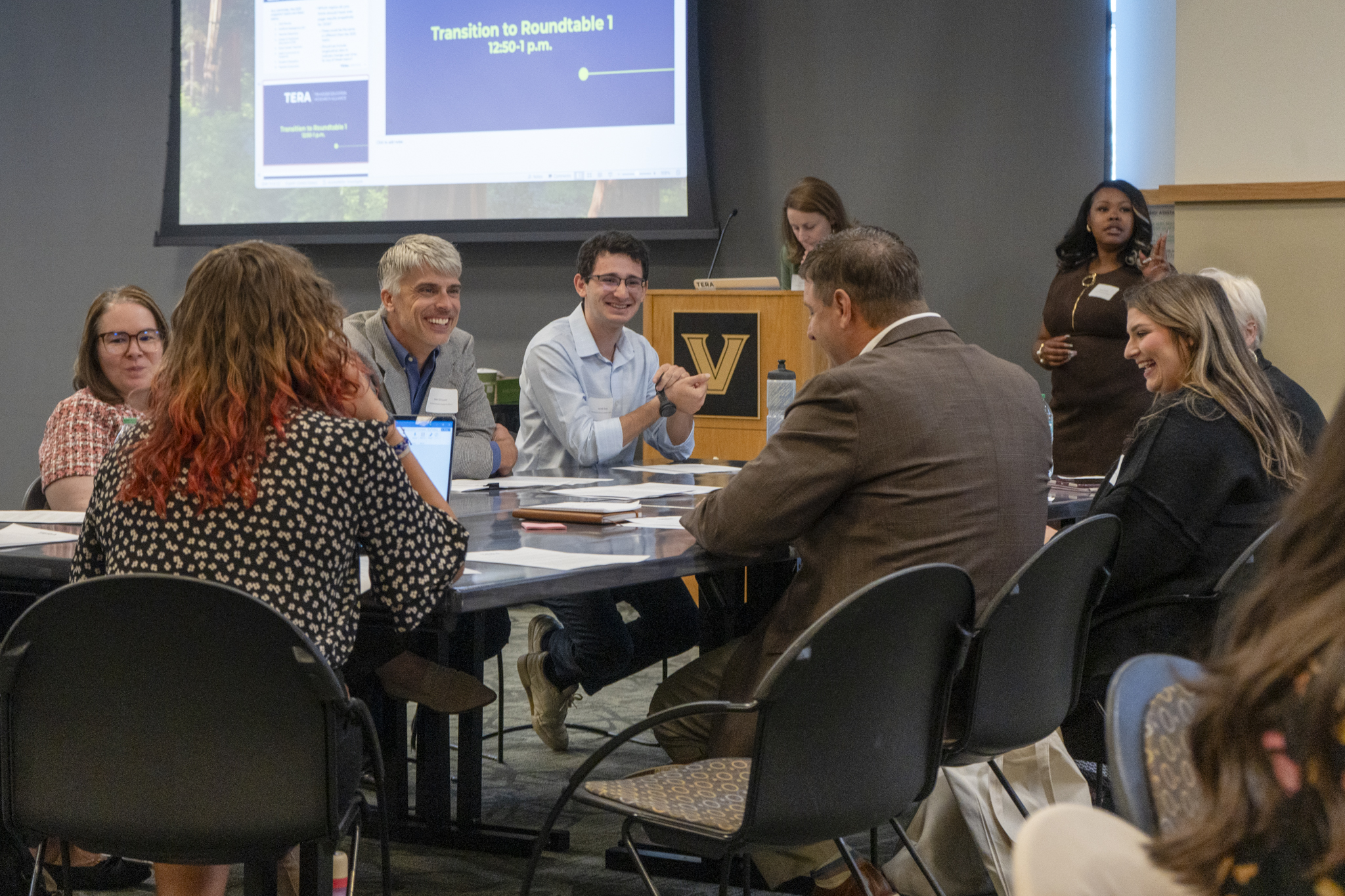By Jenna Somers
The United States Military Academy at West Point once used peer evaluations as a component of first-year student grades and promotion. It does not anymore thanks to the discoveries and recommendations that Riley Post, Ed.D.’21, made in his capstone project as a doctoral student in the online leadership and learning in organizations program at Vanderbilt Peabody College of education and human development. Post discovered widespread gender and racial affinity bias in student evaluations, and based on his findings, West Point repurposed peer evaluation for coaching purposes only and discontinued using them in determining grades. He discussed the process of completing the capstone project and its value to West Point in an episode of the podcast Pivot Point, hosted by Michael Neel, senior lecturer in the Department of Leadership, Policy, and Organizations.

In each episode of Pivot Point, Neel interviews a graduate of Vanderbilt’s online leadership and learning in organizations program about the capstone projects they designed and carried out in collaboration with an organization they sought to improve. Often the conversation focuses on the pivot points that led to the successes of their projects. “With Pivot Point, I wanted my current students to encounter the messy, complex stories behind the completion of these capstones.” Neel said. “I also wanted to showcase that many of these students do incredibly impactful work with high-level, high-stakes organizations—it’s not every day that a doctoral student helps an institution like West Point redesign its evaluation system.”
Pivot Point features transformative stories similar to Post’s, including collaborations to improve the fundraising practices of One Colorado, the state’s largest LGBTQ+ advocacy organization; help diversify faculty recruitment at James Madison University’s college of education; and empower All-In-Milwaukee, a coalition of education partners advocating for limited-income, high-potential students experiencing barriers to college graduation.
Leonard Richards Jr., Ed.D.’21, who collaborated with colleagues at JMU, succinctly summarized the purpose of his capstone in the Pivot Point episode focused on his work with a predominately white college of education. “To get us to the next level, to fight for civil rights, and to make a more equitable society, we have to start…dismantling the systems that prevented individuals like me from being included. We have to be willing to stand up and not just stand up by ourselves,” Richards said.
Similar to Richards’ thinking, Lakita Little-McKinney, Ed.D.’21, wanted to help marginalized students pursuing college educations. When she worked with All-In-Milwaukee, she quickly realized the need to listen to the students the organization sought to support. “In order to even answer the questions from the research study, I needed to understand student experience. I wanted to create space for student voice to be centered. I wanted to amplify their voice…to be heard in spaces where they felt their voice was either silenced or ignored,” Little-McKinney said.
According to Neel, these stories contribute to a larger discussion on what a terminal project for an education doctorate should be and what someone who completes the degree should be, know, and be able to do. “We often refer to people who obtain education doctorates at Vanderbilt as scholar-practitioners,” Neel said. “These are people who have a sound understanding of the research literature, and they develop capacities for conducting evidence-based research, building relationships, negotiating with organizations, acting as leaders, and implementing their work to create value for organizations. Unlike a traditional Ph.D. student, what’s asked of these students is not ‘What gap did you fill in the literature?’ It’s ‘How did this project create value for the organization?’”
Neel describes this way of approaching research participants as an ethical question that more social science researchers are taking seriously as they ask participants to contribute their time and energy to research studies. It certainly is a guiding question of the stories featured in Pivot Point and for the students who come through Vanderbilt’s leadership and learning in organizations program.
Pivot Point was created with support from a Peabody Small Grant, facilitated by the Peabody Research Office, and can be downloaded from any podcast app. Fortune recently ranked Vanderbilt Peabody College’s education doctoral program in leadership and learning in organizations as the No. 1 online education doctorate in the nation and among the eight most affordable.


